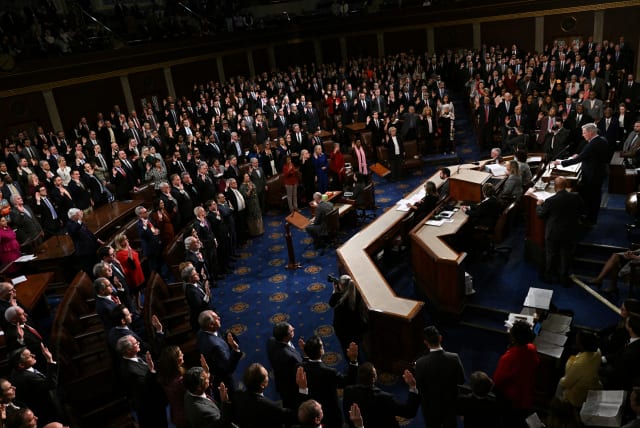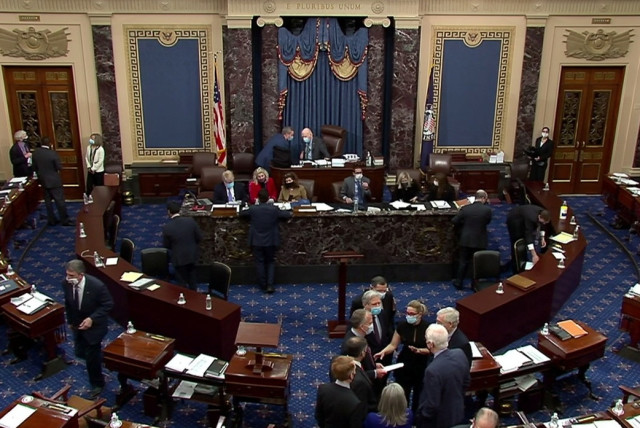US Congress passes bill to avert government shutdown, sends it to Biden

"We have good news for America. There will not be a shutdown on Friday," Senate Majority Leader Chuck Schumer, a Democrat, said on the Senate floor just before the vote in that chamber.
The US House of Representatives on Thursday approved a stopgap bill to fund the federal government through early March and avert a partial government shutdown, sending it to President Joe Biden for final approval.
The measure passed 314-108, with 106 Republicans and two Democrats in opposition.
Earlier on Thursday, the Senate had easily passed the bill, with a 77-18 vote ahead of the weekend deadline.
"We have good news for America. There will not be a shutdown on Friday," Senate Majority Leader Chuck Schumer, a Democrat, said on the Senate floor just before the vote in that chamber.
Both chambers accelerated their votes because of a forecast Friday snowstorm that could have snarled lawmakers' departure for the weekend.
Bill merely extends previous agreements until March
The Democratic-majority Senate and Republican-controlled House are far behind in carrying out their basic duty of funding the government for the fiscal year that began on Oct. 1, with lawmakers scrambling to keep the lights on to give them more time to pass a full-year bill.
Schumer and his House Republican counterpart, Mike Johnson, early this month agreed to a $1.59 trillion discretionary spending level for the year that ends on Sept. 30. But in a sign of how bitterly the Congress is divided, the two parties now disagree on that number, with Democrats saying the actual amount agreed to is $1.66 trillion.
The intense jockeying between House Republicans seeking deep spending cuts and Democrats comes amid a $34.4 trillion national debt that is rapidly escalating and has prompted worries in part because of the heavy interest payments now being borne by the Treasury Department.
This third stopgap funding bill, known as a "continuing resolution" or "CR," would simply extend last fiscal year's spending levels until two deadlines of March 1 and March 8 for completing action of spending for various government agencies.
Ahead of the votes, Democratic Representative Josh Gottheimer outlined the impact of possible government agency shutdowns, including a worsening backlog in veterans seeking disability benefits, a possible suspension of aircraft safety inspections and a freeze in Agriculture Department loans and other services to rural communities. Another example, farther ahead, is that more than 1 million military personnel temporarily would not receive paychecks.
Senator Susan Collins, the senior Republican on the Appropriations Committee, expressed frustration at how long it was taking to divide up the money for the 12 bills providing the full-year budget, saying, "This has been dragging on for a long time and I really don't know why."
In the House, Johnson could face blowback from hardline members of his party who oppose such stopgap funding bills without deep spending cuts.
That displeasure led last fall to the toppling of Johnson's predecessor, Kevin McCarthy.
Jerusalem Post Store
`; document.getElementById("linkPremium").innerHTML = cont; var divWithLink = document.getElementById("premium-link"); if (divWithLink !== null && divWithLink !== 'undefined') { divWithLink.style.border = "solid 1px #cb0f3e"; divWithLink.style.textAlign = "center"; divWithLink.style.marginBottom = "15px"; divWithLink.style.marginTop = "15px"; divWithLink.style.width = "100%"; divWithLink.style.backgroundColor = "#122952"; divWithLink.style.color = "#ffffff"; divWithLink.style.lineHeight = "1.5"; } } (function (v, i) { });

